Search Images
Browse Content (p. 1050)

Image
Latin Surrender to Saladin, 1187 CE
A painting depicting the surrender of the Latin ruler Guy de Lusignan to Saladin, the Sultan of Egypt and Syria (r. 1174-1193 CE), after the battle of Hattin in 1187 CE. The loss and subsequent capture of Jerusalem by Saladin would spark...
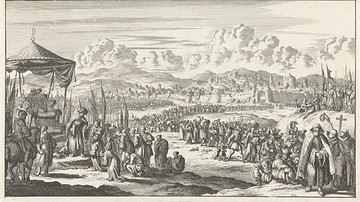
Image
Jerusalem Recaptured by Saladin
This print from 1683 CE depicts the recapture of Jerusalem in 1187 CE by Saladin (r. 1174-1193 CE) . Etching on paper. Measures 169 mm x 292 mm. (Rijksmuseum, Amsterdam)

Image
Fredrick I Barbarossa Flanked by His Sons
This image, a miniature from the "Welfenchronik" (History of the Guelphs), which dates to the late twelfth century CE, shows Frederick I Barbarossa (r. 1152-1190 CE), flanked by his sons.

Image
Richard I Marches to Jerusalem
A 19th century CE painting depicting Richard I (r. 1189-1199 CE) leading the march of the Crusader army to Jerusalem during the Third Crusade (1189-1192 CE).
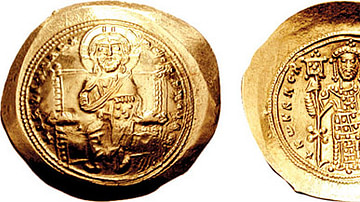
Image
Constantine X Doukas
Constantine X Dukas. Byzantine Emperor, r. 1059-1067 CE.
Gold Histamenon (4.33 gm, 6h). Constantinople mint.
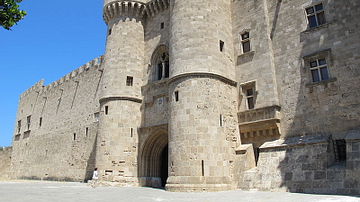
Image
Main Entrance, Palace of the Masters, Rhodes
The main entrance to the Palace of the Masters of the Knights Hospitaller or Knights of Rhodes. 14th century CE.

Image
Knights Hospitaller
An illustration by Ralph Hammann showing members of the medieval military order the Knights Hospitaller. Soultz commandery, France.
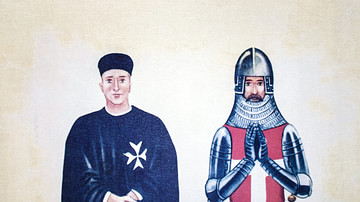
Image
Knights Hospitaller
An illustration of a priest and knight of the military order the Knights Hospitaller. 14th-15th century CE. (From a work in the Sacra Infermeria Museum, Valletta)
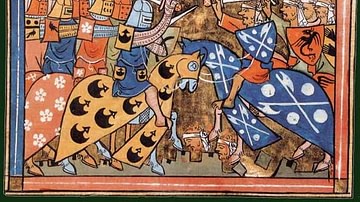
Image
Second Crusade Battle Scene
A battle scene of the Second Crusade (1147-1149 CE). From a 14th century CE illustrated manuscript of William of Tyre's history of the Crusade. (French National Library, Paris)
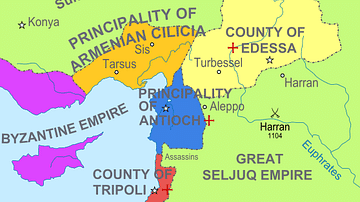
Image
The Near East in 1135 CE
This map of the Near East in 1135 CE shows four Crusader States (marked with red crosses) in relation to other powerful kingdoms in the period between the first and second crusades.